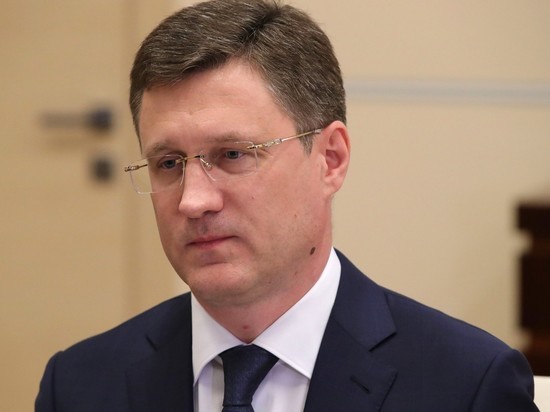Novak “threatened” China and India over oil
[ad_1]

Russia will not supply oil to countries and legal entities that in their contracts will prescribe the condition for compliance with the price ceiling. In addition, at the beginning of the year, our country may reduce production by 500-700 barrels per day, Deputy Prime Minister Alexander Novak said. Economists explained the possible consequences of these decisions.
According to him, Moscow intends to respond to the decision of the G7 member states and the European Union to limit the price of Russian oil at $60 per barrel from December 5.
The fact that the Kremlin is preparing a corresponding presidential decree was reported by Bloomberg back in November, citing a source, and Novak has now confirmed. The Deputy Prime Minister allowed a reduction in oil production in Russia in January-February 2023 by about 5-7% (500-700 bpd), and he linked this measure with the price ceiling mechanism that has recently been launched. The volume is insignificant, but there is such a risk, Novak noted.
What consequences will all this have for the global oil market and export oil and gas revenues of the Russian budget? With this question, “MK” turned to the experts.
Artem Deev, head of the analytical department at AMarkets: “Novak’s statement is addressed, first of all, to such “friendly” countries as China, India and Turkey. After December 5, they become the main buyers of Russian energy resources.
The fact is that the largest shipping companies from China are already refusing to transport raw materials from the Russian Federation, apparently fearing secondary sanctions. That is, this is a kind of warning to the markets of the Asian region and Turkey: if you support the condition of the price ceiling and fix it in your documents, we will stop deliveries.
As for the consequences for the global oil market, this move by Russia will lead to some price increases. Such a scenario is hardly in the interests of Europe and the United States, where inflation has broken records of recent decades due to the rise in energy prices. For Russia, the measure will result in a significant decrease in exports and company incomes. As a result, the budget, which is already in deficit, will suffer.
According to the forecasts of the Russian government, in 2023 the state treasury deficit could reach 2.9% trillion rubles (2% of GDP), but if oil exports fall, it will grow to 3-4.5 trillion rubles.”
Alexey Fedorov, TeleTrade analyst: “We must wait for the publication of the specific provisions of the presidential decree, which should be made public early next week. There may be exceptions or more complex implementation mechanisms that will make Moscow’s response less harsh. Otherwise, about 60 million tons of oil annually exported will be in question.
Judging by the words of Alexander Novak about the reduction in production by 500-700 thousand barrels per day, the Russian authorities plan to redirect (say, in the Asian direction) from these “hanging” 60 million tons another 24-25 million tons with the help of the “shadow fleet”. The potential losses of the Russian Federation from the ban on supplies in this case are reduced to 35 million tons per year, which, at a price of $60 per barrel of Urals, is equivalent to $13-15 billion.
For the oil market, Russia’s reduction in production by 500-700 thousand b/d is quite sensitive. In more positive macroeconomic conditions for the world economy, it would have contributed to the growth of quotations by $7-10 per barrel. However, against the backdrop of an approaching global recession and an obvious drop in demand for energy resources, this step by Moscow can only lead to a local rebound in oil prices by $3-5 per barrel – to $85-87 for Brent. After that, raw materials will continue to become cheaper.”
Igor Yushkov, expert of the Financial University under the Government of the Russian Federation: “Almost all countries that have agreed on a price ceiling are not buying Russian oil anyway. Such exporters of raw materials as Canada and Norway do not need it for nothing, nor does Australia, which is far from us. The United States imposed an embargo on supplies from April 1, the European Union – from December 5. By and large, the ban can only affect Japan, which, being a member of the G7 and supporting the decision on the price limit, can buy Russian oil at market prices for another six months, however, only from the Sakhalin-2 project.
In general, Moscow has clearly delayed its reaction, and this may lead some observers to believe that it has come to terms with the conditions of the West. Apparently, the Russian response will concern only oil transported by sea, but not pipeline deliveries – to Germany, Poland, Hungary, the Czech Republic, Slovakia and Serbia.
As for the second part of Novak’s statement – about the probable decrease in production by 500-700 bps, then we are talking about a forced, not a voluntary step. Now the entire system of Russian oil and gas exports is being restructured, which is being reoriented to Asian markets. Local consumers do not need those volumes of supplies from the Russian Federation that previously went to Europe. So we will have to reduce exports by at least 500-700 bpd.”
[ad_2]
Source link






